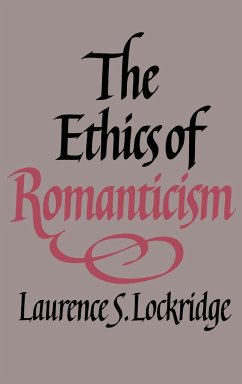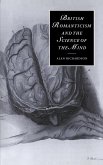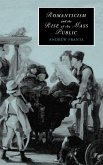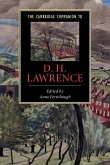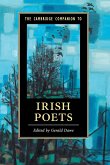In The Ethics of Romanticism Laurence Lockridge vigorously revives ethical criticism and at the same time brings to light the Romantics' profound engagement with ethical questions. He argues that a will to value is the pervasive motive of Romantic writers from Blake, Wordsworth, Coleridge and De Quincey to Shelley, Hazlitt, Keats and Byron. They articulate a compelling ethics that has had a significant influence on modern thought. Yet its character has never before been systematically explored within the larger contexts of European thought. Lockridge argues that a focus on the ethical dimension of literature is the single most powerful strategy for structuring a writer's work as a whole, and that it can even prove congenial. He gives original, interrelated readings of the eight major British Romantic writers. In discussing the place of ethical criticism in modern letters, he qualifies or refutes opposing views - conservative, Marxist, and deconstructive. His book gives strong evidence of one direction criticism might fruitfully take in future years.
Table of contents:
Acknowledgments; Editions and abbreviations; Introduction; Part I. The Will to Value: 1. In pursuit of the ethical; 2. British Romanticism, Coleridge, and European moral traditions; Part II. Agent, Power, Scene: 3. Blake: the poetry of violence; 4. The tragic Wordsworth; 5. De Quincey and Romantic decadence; Part III. The Pressure of Reality: 6. Shelley and the poetry of life; 7. Hazlitt: common sense of a dissenter; 8. Keats and the ethics of immanence; 9. Byron: the world as glorious blunder; 10. The ethical bearing of literature; Select biblilography.
Hinweis: Dieser Artikel kann nur an eine deutsche Lieferadresse ausgeliefert werden.
Table of contents:
Acknowledgments; Editions and abbreviations; Introduction; Part I. The Will to Value: 1. In pursuit of the ethical; 2. British Romanticism, Coleridge, and European moral traditions; Part II. Agent, Power, Scene: 3. Blake: the poetry of violence; 4. The tragic Wordsworth; 5. De Quincey and Romantic decadence; Part III. The Pressure of Reality: 6. Shelley and the poetry of life; 7. Hazlitt: common sense of a dissenter; 8. Keats and the ethics of immanence; 9. Byron: the world as glorious blunder; 10. The ethical bearing of literature; Select biblilography.
Hinweis: Dieser Artikel kann nur an eine deutsche Lieferadresse ausgeliefert werden.

